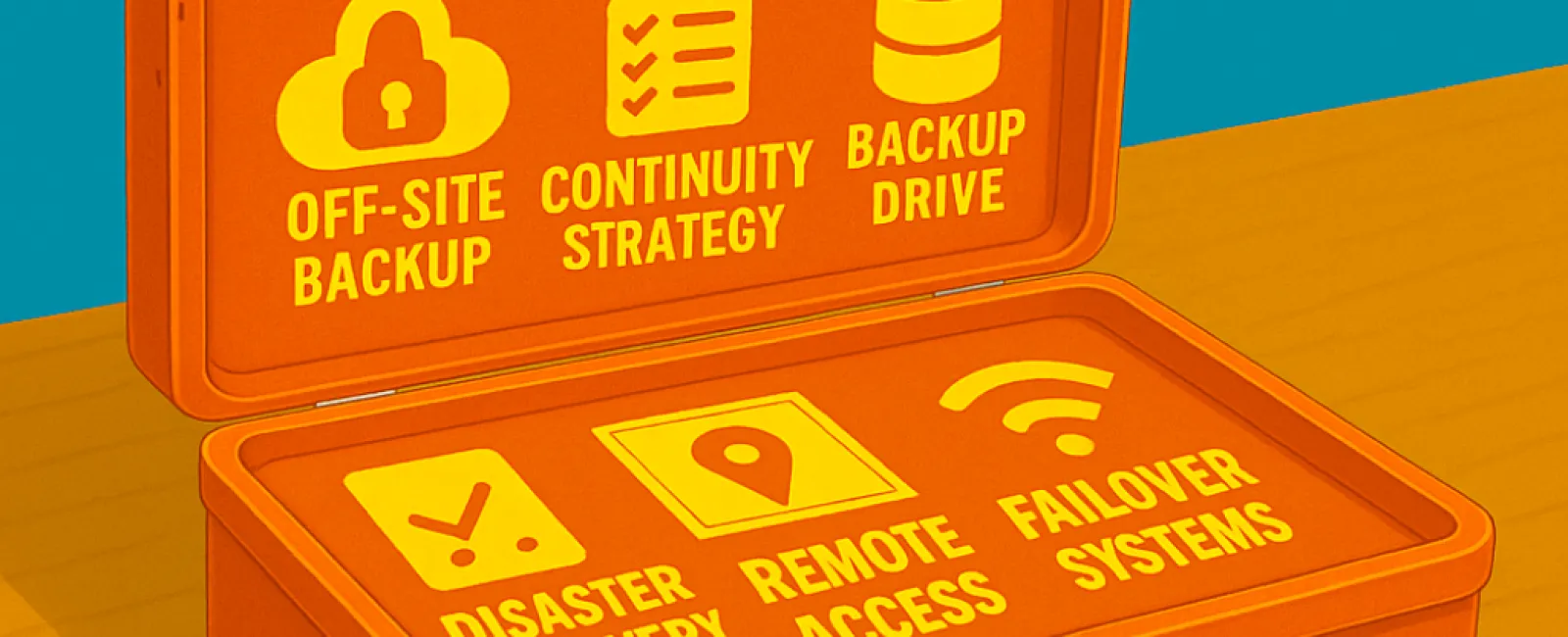July 28, 2025
Unexpected events like power outages, cyberattacks, hardware malfunctions, and natural disasters can strike without warning, causing severe disruption to small businesses. While many believe that simply having backups is sufficient, the reality is that restoring data alone doesn't guarantee your business stays operational. Without access to critical systems, support for remote work, and effective communication with your team and clients, even brief interruptions can lead to prolonged setbacks. Your trusted IT partner should equip you with more than just backups—they should deliver a comprehensive strategy to keep your business running smoothly, no matter the challenge.
Beyond Backups: Why Business Continuity Matters
Backups are undeniably vital, but they represent only a fraction of what you need. A robust business continuity plan is a forward-thinking approach designed to maintain your operations seamlessly during and after any major disruption.
When systems fail, data becomes inaccessible, or your physical workspace is compromised, relying solely on local backup files won't suffice. Without a well-defined plan to swiftly restore operations, your business faces significant risks including lost revenue, damaged reputation, and compliance issues.
Understanding the Difference: Backups vs. Business Continuity
Many businesses miss this critical distinction:
● Backups focus on data restoration.
● Business continuity ensures your operations keep running smoothly no matter what.
An effective continuity plan addresses vital questions such as:
● How quickly can we recover?
● Where will the team work if our office is inaccessible?
● Which systems are absolutely mission-critical?
● Who is responsible for initiating the recovery process?
Key elements of a strong continuity strategy include:
● Encrypted, off-site, and immutable backups
● Prioritized recovery objectives (RTO/RPO)
● Remote work capabilities
● Redundant systems and automatic failovers
● Regularly scheduled disaster recovery drills
If your IT provider can't confidently guide you through these essentials, you're not truly protected—you're just fortunate so far.
Is This Really a Risk for Your Business?
This isn't fear-mongering; these are real-world disasters with tangible consequences. Recently:
● Florida hurricanes displaced hundreds of businesses, leaving those without cloud access completely immobilized.
● North Carolina flooding destroyed on-site servers, wiping out months of crucial records and invoices.
● California wildfires razed entire office buildings in the Pacific Palisades, many lacking any off-site recovery safeguards.
● Numerous small businesses hit by ransomware attacks have discovered their backups were either corrupted or never tested.
Disasters don't discriminate—they impact businesses of all sizes every day.
Questions You Should Be Asking Right Now
If disaster struck tomorrow, could your business maintain operations?
Ask your IT provider these critical questions:
● How quickly can we recover if ransomware strikes?
● Are our backups regularly tested, and which systems do they cover?
● What's the contingency plan if a flood or fire destroys our office?
● Is our continuity plan compliant with all relevant industry regulations?
● Can we continue serving clients if our team needs to work remotely?
If you're not completely confident in these answers, your business may already be at risk.
Disasters Are Inevitable. Downtime Isn't.
While you can't prevent every power outage, storm, or cyberattack, you can control how your business responds.
An excellent IT provider helps you recover.
A great IT provider ensures your business never misses a beat.
Ready to discover your business's readiness?
Click Here or call us at 760-770-5200 to schedule your FREE Quick and Easy Call, and let's ensure that disasters never lead to downtime.



